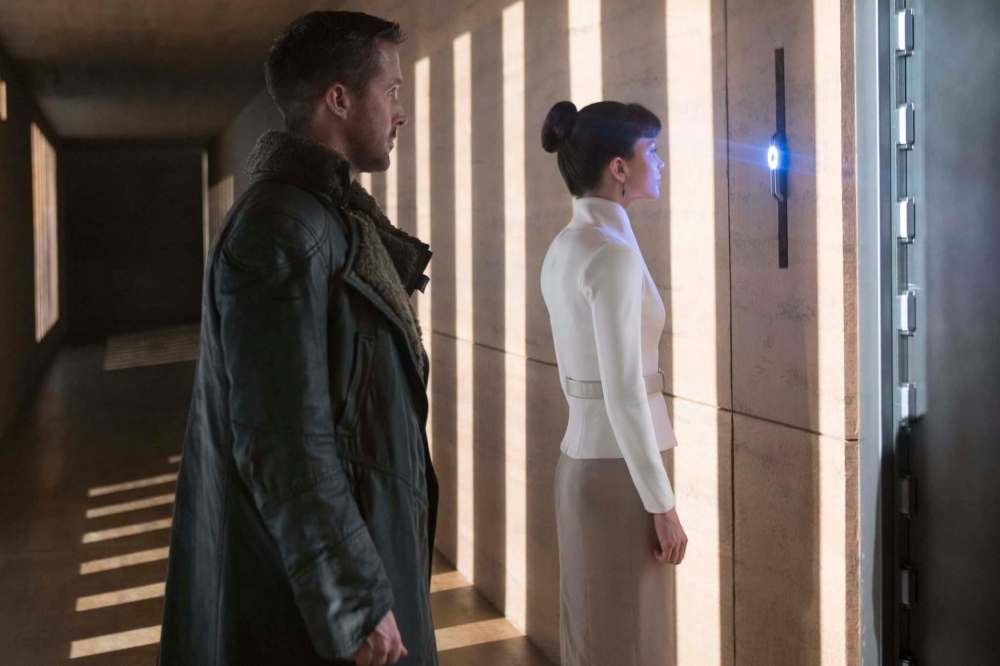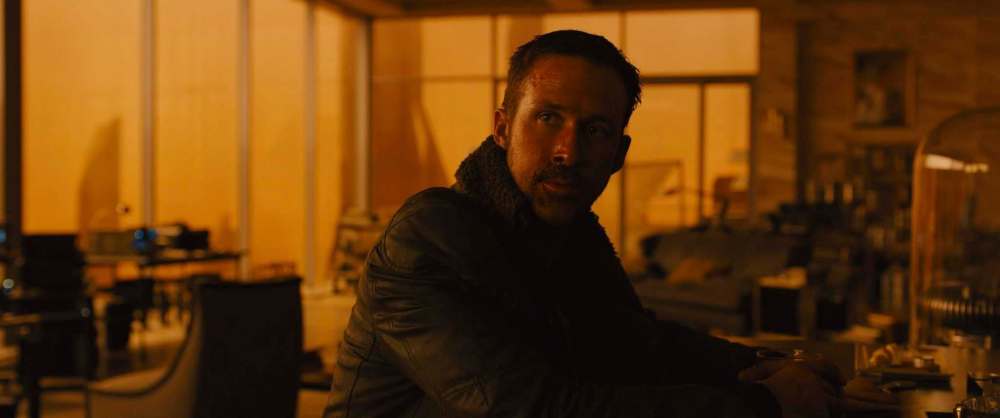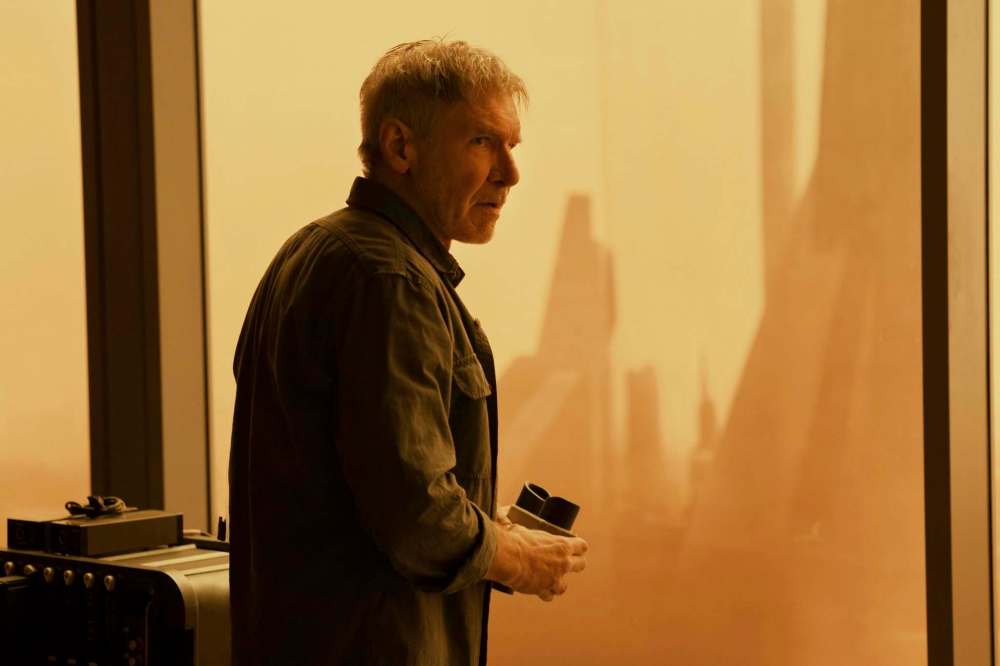Replicating genius
Villeneuve's sequel honours the legacy of sci-fi classic
Advertisement
Read this article for free:
or
Already have an account? Log in here »
To continue reading, please subscribe:
Monthly Digital Subscription
$0 for the first 4 weeks*
- Enjoy unlimited reading on winnipegfreepress.com
- Read the E-Edition, our digital replica newspaper
- Access News Break, our award-winning app
- Play interactive puzzles
*No charge for 4 weeks then price increases to the regular rate of $19.00 plus GST every four weeks. Offer available to new and qualified returning subscribers only. Cancel any time.
Monthly Digital Subscription
$4.75/week*
- Enjoy unlimited reading on winnipegfreepress.com
- Read the E-Edition, our digital replica newspaper
- Access News Break, our award-winning app
- Play interactive puzzles
*Billed as $19 plus GST every four weeks. Cancel any time.
To continue reading, please subscribe:
Add Free Press access to your Brandon Sun subscription for only an additional
$1 for the first 4 weeks*
*Your next subscription payment will increase by $1.00 and you will be charged $16.99 plus GST for four weeks. After four weeks, your payment will increase to $23.99 plus GST every four weeks.
Read unlimited articles for free today:
or
Already have an account? Log in here »
Hey there, time traveller!
This article was published 06/10/2017 (2966 days ago), so information in it may no longer be current.
The sci-fi classic Blade Runner is beloved — and rightly so — not just for its compelling narrative of the lonely hunter, but for the package that the futuristic fable came wrapped in. Based on a 1968 novel by Philip K. Dick, Ridley Scott’s 1982 film was notable for its screenplay of oblique, muscular poetry (by Hampton Fancher and David Peoples); a cynical and gorgeously gloomy film-noir sensibility; and philosophical musings about what it means to be human.
Blade Runner 2049, the superb new sequel by Denis Villeneuve (Arrival), doesn’t just honour that legacy, but, arguably, surpasses it, with a smart, grimly lyrical script (Fancher and Michael Green of the top-notch Logan); bleakly beautiful cinematography (Roger Deakins); and an even deeper dive into questions of the soul.
Set 30 years after the action of the first film, 2049 focuses, like Scott’s tale, on a blade runner: a cop whose mission it is to track down and “retire” bioengineered humanoid “replicants” that were once used as slave labour — “skinners” or “skin jobs” in the parlance of the film — and who have since-gone on the lam after being found to disobey orders. In the world of 2049, there are now two kinds of replicants, in addition to people: the old, rogue versions and a newer, more subservient variety designed by a god-like industrialist (Jared Leto), who refers to his products, tellingly, as good and bad “angels.”

One key character isn’t even real — at least not in the traditional sense — but a hologram.
When we first meet the film’s LAPD hero, called K (Ryan Gosling), he is on the job, an assignment that might be considered an assassination if the target of his lethal mission were human, or his cause unethical. And maybe they are. Who knows? Those open-ended questions loom large in both films, along with some new ones here.
While dispatching his victim, K discovers something that, in the words of his supervisor (Robin Wright), “breaks the world.” That might seem a strange way of putting things, in a city that already seems pretty broken. The Los Angeles of Blade Runner 2049 is one that alternates between smog, lashing rain and an ash-like precipitation that may or may not be snow. The city is surrounded by mountains of trash and farther out beyond that, a radioactive wasteland.
But there’s a precarious balance to this world of us-and-multiple-themes, and K’s find — which opens a new and, for him, more personal mystery — turns the film from a manhunt, or whatever you might call it that K does, into a character’s search for his own past.

If this synopsis sounds like it’s dancing around a more explicit summary of who’s who and what’s what, it is. Some critics who were invited to press screenings of 2049 were asked to sign a non-disclosure agreement, singling out several characters and plot points as spoilers to be avoided. Reporters from the Washington Post were not asked to sign this, but because the film contains many genuine pleasures and surprises, large and small, it really is best to know the least about this film.
What can be said: there are returning characters, including Harrison Ford’s blade runner Deckard, from the first film. He’s in the trailer, but Deckard’s precise role in this ambitious coda of a gumshoe opera should — and will, in these pages — remain unspoken. The special effects are impeccable — and they include sequences that blur the line, evocatively, between what’s real and unreal. The score by Hans Zimmer and Benjamin Wallfisch, both of whom worked on Dunkirk, is loud and at times assaultive here, modulating from a quietly anticipatory ear-tinkle to the blast of a foghorn. At close to three hours, Blade Runner 2049 is a long film, but it’s unlikely that true partisans will notice or mind.
What is Blade Runner 2049 about? It may help to know that two characters are named Joi (Ana de Armas) and Luv (Sylvia Hoeks). More can’t be revealed about how each one fits into this unashamedly allegorical action movie. But the deepest mystery in this tale of robots gone bad isn’t who — or what — is synthetic, but why we need to tell ourselves that something we can’t see — a memory, an emotion, a conviction — is real. The question, in short, is this: what makes some lives worth living, and some beliefs worth dying for?
— Washington Post





